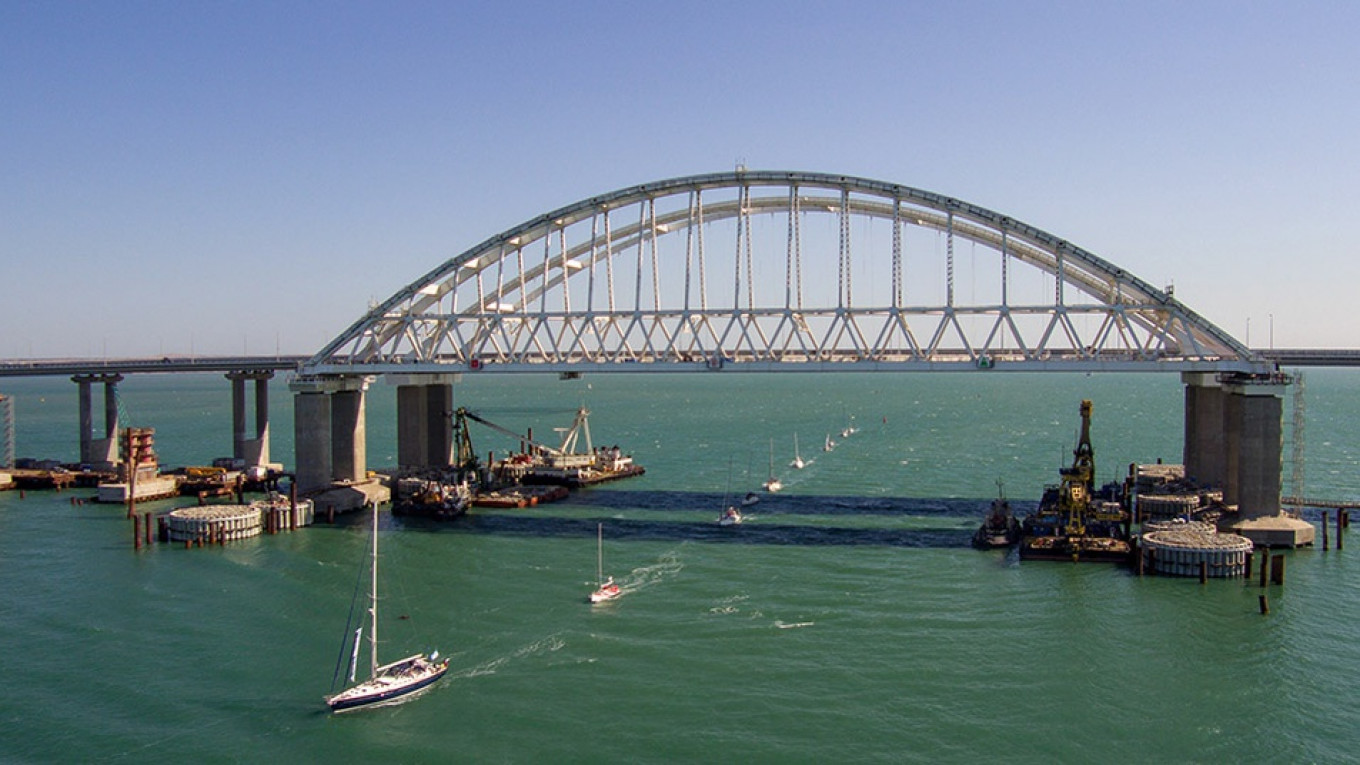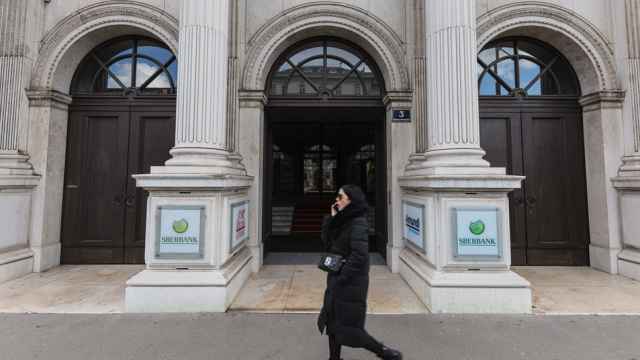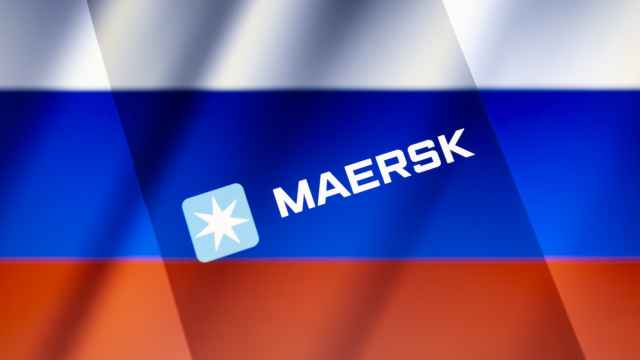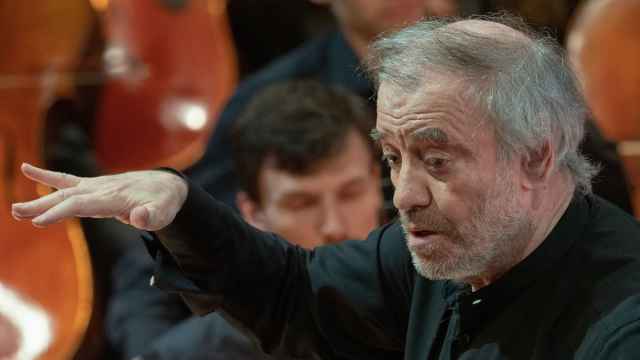When Vladimir Putin opened a new bridge linking Crimea to the rest of Russia across the Azov Sea in May, Russian officials said it was intended to integrate the disputed peninsula — seized by Moscow from Ukraine in 2014 — into Russia's transport infrastructure. By limiting ships transiting the Kerch Strait beneath the giant central span of the bridge, however, it also gave the Kremlin the ability to control maritime access to an area of water roughly the size of Switzerland.
On Sunday, Moscow turned the key in that door by using a cargo ship to block entry to the Azov Sea. As warplanes and combat helicopters flew overhead, Russian border patrol boats seized three Ukrainian naval ships after opening fire on them and wounding several sailors. On Monday, Russia's FSB security service said that the confrontation came after the Ukrainian vessels illegally entered Russian waters; Ukraine denied its ships had done anything wrong.
Russia has now reopened the strait, but the clash was another demonstration of Moscow's ever-mounting appetite to use unorthodox, partially nonmilitary and sometimes nonlethal techniques to redraw the geopolitical map. It's a strategy Putin's foes — particularly Ukraine, still locked in an endless ground war elsewhere along its border, but also the Western states of NATO — are struggling to counter.
Ukraine and its Western allies must now decide how to respond. Not to do so, many argue, would strike Russia as weakness and invite yet more aggression. But no side wants a conflict they cannot control — this is much more like a game of chess, albeit with live ammunition, ships, aircraft and human beings in the balance.
The most recent clash points to a growing trend in international relations, where military force, economic power and major building and infrastructure programs are used alongside cyber weapons, propaganda and more. Such confrontations can be largely bloodless — as in the South China Sea — or brutally violent, as in Ukraine's Donbass or the savage Middle Eastern proxy wars of Syria and Yemen.
Such confrontations appear steadily on the rise, fueled by growing tensions on a host of topics from trade to human rights. Disagreements between Washington and Beijing undermined the Asia-Pacific Economic Cooperation summit in Papua New Guinea earlier this month. The mounting Azov Sea crisis will now feed into this week's G20 summit in Argentina, which both Putin and U.S. President Donald Trump are scheduled to attend.
As in the South China Sea, where Beijing has also used giant engineering works to reclaim islands and build military bases in disputed waters, the Azov Sea conflict has been long building in plain sight. Work on the bridge began in 2015, the year after Ukraine lost control of Crimea to Moscow. Putin eventually acknowledged that Russian troops had taken part in the annexation, but continues to deny Moscow's military involvement elsewhere in Ukraine despite widespread evidence to the contrary.
Moscow appears similarly disingenuous over events in the Azov Sea. Last week, a senior Russian diplomat accused Western states of deliberately stoking tensions to justify new sanctions. Like the annexation of Crimea, this maritime version of a land grab is illegal under international law — the Azov Sea had been judged under joint Russian-Ukrainian jurisdiction.
The reality, however, is that it is now under Russian domination. Its sole major port in Ukrainian territory, Mariupol, is now effectively blockaded; even before Sunday's incident, Russian interference with shipping was causing serious harm to the local economy. Mariupol's residents may now fear worse — fighting came within a few miles of the city in 2014 and sporadic battles have continued further east around Donbass and Luhansk, killing more than 10,000.
In the run-up to this weekend's confrontation, Ukrainian commanders boasted they would open a naval base in the Azov Sea by Christmas, with the explicit aim of preventing the area from becoming a new Crimea. It's now evident that tactic would almost certainly invite massive Russian retaliation, which means Ukraine appears to be seeking other options. On Sunday night, Russian media reported heightened Ukrainian shelling on the battlefields of Donbass.
Despite increased Western military aid since Crimea, Ukraine remains outside NATO — meaning there is no treaty obligation for Western states to act. However, European nations and many in the U.S. national security community would like to see further direct support, likely training and perhaps further weapons. U.S. and other NATO warships may also step up their presence in the nearby Black Sea. Offshore confrontations there, too, are on the rise — one British warship earlier this year was aggressively overflown by up to 17 Russian jets.
Such Western moves would enrage Russia further, but — like the additional sanctions that now seem inevitable — would also impose a penalty on Moscow for its actions. The incident will likely also bolster NATO's efforts to shore up its Eastern European defenses.
Perhaps the most significant response to Sunday's confrontation was Trump's tweet criticizing Europe for not paying its “fair share for Military Protection.”
All this will further darken the G20 mood. European leaders were already increasingly defining themselves in opposition to Trump; now they will be angrier. The U.S. president's face-to-face with Chinese President Xi Jinping had been considered the main event; now any meeting with Putin will be even more closely watched.
The Azov confrontation may yet yield bloodshed, but fallout can probably be controlled. The more countries choose to abandon diplomacy in favor of ever riskier military bets, however, the more likely a titanic global catastrophe becomes.
Peter Apps is Reuters global affairs columnist, writing on international affairs, globalization, conflict and other issues. He is the founder and executive director of the Project for Study of the 21st Century; PS21, a non-national, non-partisan, non-ideological think tank. The views and opinions expressed in opinion pieces do not necessarily reflect the position of The Moscow Times.
A Message from The Moscow Times:
Dear readers,
We are facing unprecedented challenges. Russia's Prosecutor General's Office has designated The Moscow Times as an "undesirable" organization, criminalizing our work and putting our staff at risk of prosecution. This follows our earlier unjust labeling as a "foreign agent."
These actions are direct attempts to silence independent journalism in Russia. The authorities claim our work "discredits the decisions of the Russian leadership." We see things differently: we strive to provide accurate, unbiased reporting on Russia.
We, the journalists of The Moscow Times, refuse to be silenced. But to continue our work, we need your help.
Your support, no matter how small, makes a world of difference. If you can, please support us monthly starting from just $2. It's quick to set up, and every contribution makes a significant impact.
By supporting The Moscow Times, you're defending open, independent journalism in the face of repression. Thank you for standing with us.
Remind me later.








